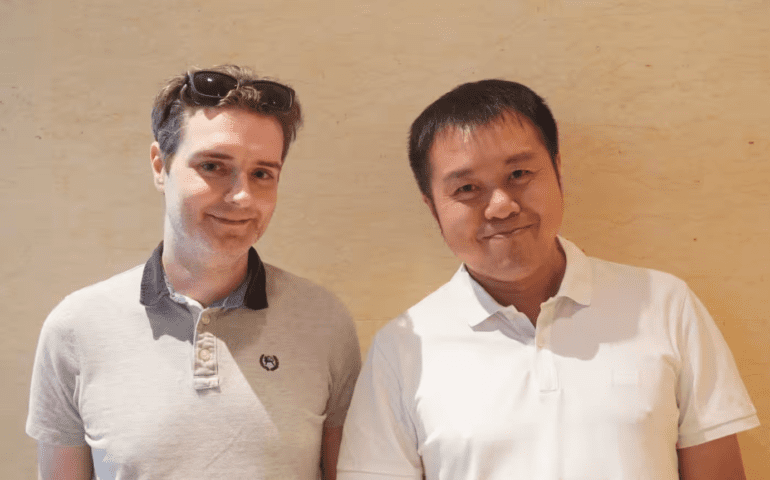TL;DR:
- Tokyo-based startup, Sakana AI, founded by former Google researchers, raises $30 million for AI model development.
- Funding is led by Lux Capital, with participation from Khosla Ventures, Sony Group, NTT, and KDDI, among others.
- Sakana aims to explore novel AI approaches, emphasizing resource-efficient systems over large-scale computing.
- The company differentiates itself from Silicon Valley rivals by tapping into Japan’s underappreciated AI talent.
- Collaborative efforts with NTT to advance generative AI research.
Main AI News:
Tokyo-based artificial intelligence (AI) startup, Sakana AI, founded by former Google researchers, recently announced a successful funding round that raised $30 million. This investment will fuel the development of cutting-edge AI models, featuring a groundbreaking approach.
Sakana, meaning “fish” in Japanese, was established last year by CEO David Ha, renowned for leading Google Brain’s Tokyo-based research team, and Llion Jones, a co-author of an AI model paper that has gained widespread use, including in applications like OpenAI’s ChatGPT chatbot.
Lux Capital, a prominent U.S. venture capital firm, spearheaded the seed funding round, joined by the well-known Khosla Ventures, recognized for its early support of Open AI. Additionally, Japan’s Sony Group and telecommunications giants NTT and KDDI, through their venture capital arms, contributed to the investment. Notable individual investors include Jeffrey Dean, Google’s chief scientist, and Miyako Capital based in Kyoto.
During an interview, Ha shared that this funding infusion would enable Sakana to channel its efforts into research and development over the next one to two years. The company has already onboarded former Google employees and talent from the U.K.-based startup Stability AI.
Ha emphasized, “There is ample opportunity to innovate and introduce fresh perspectives into the AI landscape.” While existing companies predominantly focus on training large-scale AI systems that demand significant computing power, Sakana is pioneering the exploration of systems built upon a network of smaller “agents,” potentially yielding greater resource efficiency.
Sakana’s location in Tokyo provides a distinct advantage in differentiating itself from its Silicon Valley counterparts, which are engaged in fierce competition for top AI talent and computing resources. Ha also pointed out that Japan’s leading AI researchers often go unrecognized in the global talent acquisition arena.
Josh Wolfe, co-founder and managing partner at Lux Capital, expressed his views in a press release, stating, “In an increasingly complex world, Asia requires and will undoubtedly produce a pioneering AI entity. Japan, a robust democratic nation and a strong ally of the U.S., is poised to assume this leadership role.”
In November, NTT, with plans to unveil its own Japanese-language AI model in March, and Sakana announced their collaborative efforts in generative AI research and development. Ha affirmed that Sakana’s contributions to AI development in Japan extend beyond language limitations, reflecting a broader commitment to advancing the field.
Conclusion:
Sakana AI’s substantial funding and unique approach position Japan as a potential leader in the AI industry, offering innovative alternatives to traditional AI models and leveraging the country’s untapped talent pool. This development signals growing opportunities in the Japanese AI market, with potential global implications.

